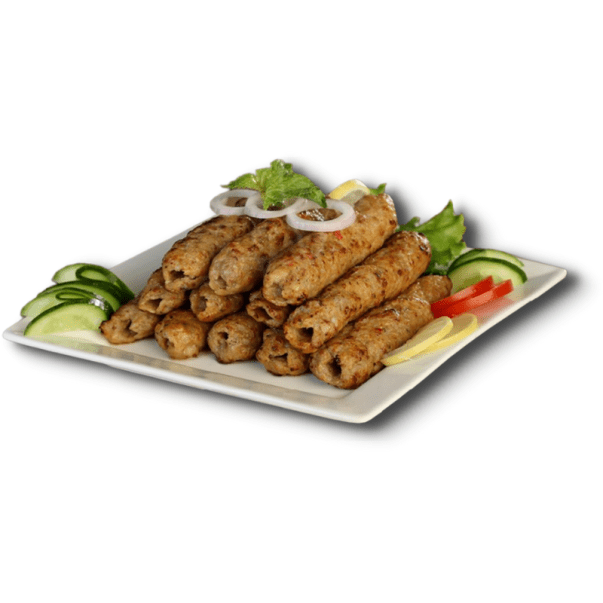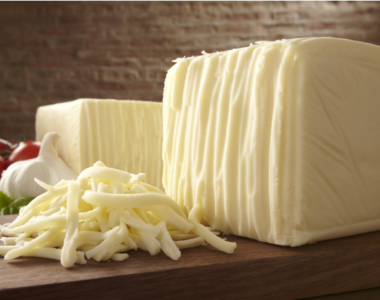
Mouthwatering Marvels: The World of Seekh Kebabs
Mouthwatering Marvels: The World of Seekh Kebabs
Introduction
Few culinary experiences are as tantalizing as sinking your teeth into a perfectly grilled, aromatic seekh kebab. These spiced, skewered delights, hailing from the heart of Indian cuisine, have captured the hearts and palates of food enthusiasts worldwide. As we embark on a journey through the world of seekh kebabs, we’ll explore their rich history, the art of preparation, regional variations, and the cultural significance that elevates them from mere food to culinary marvels.
A Brief History of Seekh Kebabs
Origins in the Mughal Empire
The roots of seekh kebabs can be traced back to the Mughal Empire in the Indian subcontinent, around the 16th century. It was during this period that the royal chefs crafted these kebabs fit for emperors. The name “seekh” itself is derived from the Persian word “sikh,” meaning skewer or stick. The Mughals, known for their refined taste and extravagant feasts, introduced the concept of skewering minced meat and grilling it to perfection.
Evolution and Regional Variations
As the Mughal Empire dissolved, seekh kebabs found their way into various regional cuisines, each adding its own unique touch. Today, seekh kebabs have become an integral part of Indian, Pakistani, and Bangladeshi cuisines, with each region offering its distinct take on this culinary gem.
Ingredients and Preparation
The Base: Minced Meat
Traditionally, seekh kebabs are made using finely minced meat, often a combination of lamb or beef mixed with spices. The meat’s fat content plays a crucial role in ensuring the kebabs’ juiciness and tenderness.
Spices that Define Seekh Kebabs
The spices used in seekh kebabs are what give them their distinctive flavor profile. A blend of aromatic spices such as cumin, coriander, ginger, garlic, and garam masala are combined with the meat. Additionally, ingredients like yogurt or cream are added to tenderize the meat and enhance its flavor.
The Art of Marination
To achieve the perfect balance of flavors, seekh kebabs are marinated for hours, allowing the spices and seasonings to permeate the meat thoroughly. This marination process not only infuses the kebabs with flavor but also ensures their succulence.
Skewering and Grilling
Shaping Seekh Kebabs
The marinated meat mixture is skillfully molded onto long, slender skewers, giving seekh kebabs their signature cylindrical shape. The use of skewers helps the kebabs cook evenly and retains their moisture.
Traditional Tandoor vs. Modern Grilling Techniques
While seekh kebabs are traditionally cooked in a tandoor, a cylindrical clay oven, modern grilling methods have gained popularity. Tandoor-cooked kebabs have a distinct smoky flavor, while grilling imparts a charred and slightly crispy texture.
Regional Delights
Lucknawi Seekh Kebabs
Lucknawi seekh kebabs are renowned for their delicate flavors and melt-in-the-mouth texture. They are often flavored with aromatic spices and served with mint chutney and parathas.
Hyderabadi Seekh Kebabs
Hyderabadi seekh kebabs are known for their fiery kick, thanks to the generous use of red chili powder and green chilies. They are traditionally served with a flavorful biryani or fragrant pulao.
Punjabi Seekh Kebabs
Punjabi seekh kebabs are robust and hearty, with a generous use of spices and herbs. They are often paired with naan bread and a tangy yogurt-based sauce.
Bengali Shorshe Seekh Kebabs
Bengali seekh kebabs stand out for their mustardy twist. They are flavored with mustard oil and paste, adding a unique zing to the kebabs.
Serving and Accompaniments
The Perfect Plating
Seekh kebabs are typically presented on a sizzling platter, garnished with fresh herbs, onion rings, and lemon wedges. This visual appeal only heightens the anticipation of tasting these delicacies.
Complementary Sauces and Chutneys
Seekh kebabs are often served with an array of sauces and chutneys, such as mint chutney, tamarind chutney, or yogurt-based raita. These accompaniments provide a refreshing contrast to the rich and spicy kebabs.
Seekh Kebabs Around the World
International Variations and InfluencesThe love for seekh kebabs has transcended borders, leading to variations in different parts of the world. Middle Eastern koftas, Turkish köfte, and Greek keftedes all share similarities with seekh kebabs, showcasing their global influence.
The Culinary Experience
Seekh Kebabs in Festivals and Celebrations
In India, seekh kebabs are a staple during festivals and celebrations. They symbolize togetherness and are often shared among family and friends, making every gathering a memorable culinary experience.
Seekh Kebabs as Street Food
Seekh kebabs are a cherished street food in India and neighboring countries. Street vendors grill them to perfection, serving them fresh and piping hot, wrapped in soft bread or flatbreads.
Recipes to Try at Home
Classic Seekh Kebabs
For those eager to recreate the magic of seekh kebabs at home, here’s a classic recipe that highlights the traditional preparation method.
Ingredients:
- 500g minced meat (lamb, beef, or chicken)
- 2 tablespoons ginger-garlic paste
- 1 tablespoon red chili powder
- 1 tablespoon ground cumin
- 1 tablespoon ground coriander
- 1 tablespoon garam masala
- Salt to taste
- 2 tablespoons yogurt
- 2 tablespoons vegetable oil
- Skewers, soaked in water
Instructions:
- In a bowl, combine the minced meat, ginger-garlic paste, red chili powder, cumin, coriander, garam masala, salt, yogurt, and vegetable oil. Mix well and let it marinate for at least 2 hours, or preferably overnight.
- Preheat your grill or oven to medium-high heat.
- Take a portion of the marinated meat mixture and shape it onto the skewer, forming a cylindrical kebab.
- Grill the kebabs, turning occasionally, until they are evenly cooked and have a charred exterior, approximately 15-20 minutes.
- Serve hot with mint chutney and naan bread.
Conclusion
In concluding our exploration of the mouthwatering marvels that are seekh kebabs, it’s evident that these spiced skewers have not only stood the test of time but have evolved into an enduring symbol of culinary excellence. From their regal origins in the Mughal courts to becoming a beloved street food, seekh kebabs have captured the hearts and palates of food lovers across the globe.
The art of creating the perfect seekh kebab lies not just in the choice of meat and spices but in the passion and skill of the cook. Whether enjoyed at a festive celebration, savored as street food, or prepared with love at home, seekh kebabs offer a sensory experience that is as much about tradition and culture as it is about flavor.
So, the next time you encounter the irresistible aroma of seekh kebabs wafting through a bustling street or sizzling on a grill, remember that you’re not just indulging in a culinary delight; you’re partaking in a time-honored tradition that has woven itself into the tapestry of Indian and world cuisine—a truly mouthwatering marvel.




